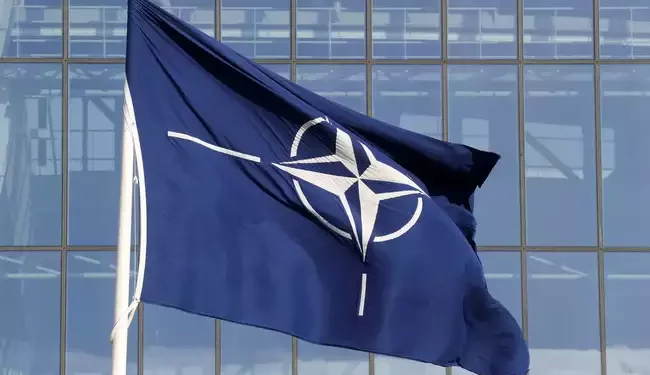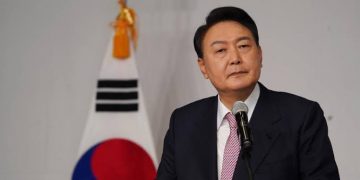Washington: The 32-member NATO expressed concerns Wednesday over the deepening relationship between Russia and China, and the latter’s aggressive behaviour.
“The People’s Republic of China’s (PRC) stated ambitions and coercive policies continue to challenge our interests, security and values. The deepening strategic partnership between Russia and the PRC and their mutually-reinforcing attempts to undercut and reshape the rules-based international order are a cause for profound concern,” said the Washington Summit Declaration.
“We are confronted by hybrid, cyber, space and other threats and malicious activities from state and non-state actors,” said the declaration issued by the heads of state and government participating in the meeting of the North Atlantic Treaty Organisation (NATO) here during which it welcomed Sweden as its 32nd member country.
The historic accession of Finland and Sweden makes them safer and the alliance stronger, including in the High North and the Baltic Sea, it said.
Russia’s full-scale invasion of Ukraine has shattered peace and stability in the Euro-Atlantic area and gravely undermined global security, said the declaration, adding that Russia remains the most significant and direct threat to the allies’ security.
“Terrorism, in all its forms and manifestations, is the most direct asymmetric threat to the security of our citizens and to international peace and prosperity. The threats we face are global and interconnected,” it said.
At the 75th anniversary summit, NATO took steps to strengthen its deterrence and defence, bolster long-term support to Ukraine so it can prevail in its fight for freedom, and deepen NATO’s partnerships.
“We warmly welcome President (Volodymyr) Zelenskyy of Ukraine and the leaders of Australia, Japan, New Zealand, the Republic of Korea and the European Union,” said the declaration.
Earlier in the day, NATO Secretary General Jens Stoltenberg said the alliance will reinforce its partnerships in the Indo-Pacific to push against the growing alignment of Russia, China, Iran and North Korea.
“We will increase our support for Ukraine by establishing a NATO coordination and security assistance and training for Ukraine, and by ensuring a sustained support for the long term. Support to Ukraine is not charity. It is in our own security interest,” he said.






































